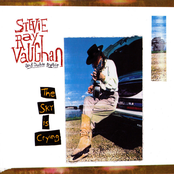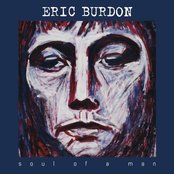I really shouldn’t respond to this kind of thing, but the stupidity and utter ignorance of this one is really, really annoying me. I’m not a birder, I’m not even a member of the RSPB. However, all regular readers will know that I have a reasonable knowledge of, and love deeply, the countryside and wildlife around me. This deep affection for the natural environment runs very, very deep. I love to see birds, plants, animals and all manner of species around me. Being able to observe these things is one of the joys of cycling.
Occasionally, I hear the old canard that songbirds are dying out because of the proliferation of magpies, who kill them. On other occasions, I’ve been told that the unchecked hawk population is killing them. In short, I’m getting really, really fed up with this ignorance. There was a really good example of this in the Express & Star this week.
So what is really behind the decline in songbirds? I’ll tell you right here. We are. Humans.
Songbirds have lived in symbiosis with their natural predators – be they raptor, corvid or mammal – for much longer than humans have been around. The constant struggle for life has been ongoing. It’s part of the natural order. As populations of predators rise, so they will consume more of their prey, food will become scarce, and their numbers will thin. With less predators, the prey will increase in number. This gentle, natural fluctuation is part of evolution, part of nature and has been occurring between all prey and predators since the whole thing began. Into this mix there are the natural effects of good and bad seasons, transitory disease outbreak and so on. Not even the RSPB, in all it’s power, can moderate that.
What has happened in the UK is a huge increase in human occupation, and a huge shift in the way we and agriculture use land. Crops are now genetically pure, dusted for insects and unsupportive of most of the things that songbirds require. We’ve lost many, many miles of hedgerows. Copses and woods have declined in number and size. Our gardens have been asphalted, slabbed, blocked and decked over. We manicure them into shape, and spray the things we do grow against bugs and weeds. We keep, in huge numbers, cats. Cats, fed daily, prey at will on birds and small mammals. I like cats, I love them to bits, but it’s true.
The simple truth, Mr. or Mrs. Mallen, is that there are very few habitats left. As a country, our songbirds are at the last chance saloon. We have driven them out of house and home, starved them of their diets and presented them with a furry enemy they’ve never quite been prepared for.

‘Look mate, you don’t expect me to eat kebabs, do you?’ - brilliant sparrow hawk image by Stephen Burch.
Instead of handwringing and blaming a charity who are actually telling the truth, feed your birds. Provide them with cover. Let a bit of garden grow wild, to encourage the bugs, leatherjackets and creepy crawlies that may of our birds love. Hang up fat balls, niger seed feeders and sunflower hearts. Blackbirds love fruit, raisins and cheap fruitcake crushed to crumbs. Grow shrubs like catoniaster, whose orange berries, laden with sugar, blackbirds will guard. Put out dried mealworms for your robins.
Occasionally, you’ll see a sparrowhawk. If you’re lucky, you’ll see it strike; they have to survive too. Your bird table will be barren for a week or so, but the birds will return. I love all the wild birds, and there are few things more beautiful than raptors in action. Please don’t listen to the ignorance – the birds are dying by our own hand, and it’s up to us to sort it out as best we can.


 RSS - Posts
RSS - Posts









It’s not rocket science, a predator prey relationship doesn’t have an imbalance like the plonka is suggesting. Good sparrowhawk numbers reflect healthy numbers of prey items. I see shedloads of blackbirds. So birds just move into other habitats do they? That’s why I have corncrake and wood warbler nesting on the lawn is it?!
HI Bob
thanks for this information. I have not seen any thrushes in my garden for many a year..and I get very few sparrows now. Something bad is happening. I put good feed out on the bird table for the two resident obese ring-neck pigeons and the lone robin. Good adivce. Thanks, Bob We kill off insects, especially bees, at our peril..
I’ve not seen a thrush in my garden for a long time – but the garden has never supported a snail population, which I think may be linked. I get a 3 or 4 visits a year from a pair of mistle thrushes, though. Sparrows? Could give you sackfulls of those, although I have a vacancy for a robin at the mo. Very few greenfinches, but lots of chaffinches, and, of course magpies. The tits come and go, and I occasionally see a spotted woodpecker. Oddly low on starlings right now – I love to see them pacing the lawn in rows after the rain, like police forensic squads.
Best wishes
Bob
I feel better now, I’ll leave my garden and hedges wild for the birds. I haven’t seen a sparrow hawk for a few years. I do see a lot of magpies and pigeons and often wonder if they have predators. I wonder about wildlife. I went around Primley avenue park in Walsall, not a dickie bird literally and no small animals. We have squirrels and foxes near where I live in Wednesbury. I didn’t see much in Merrion’s Wood either and thought that was strange. That is a great wood to take photos though.
Sparrowhawks will take the pigeons, and larger raptors will, too.
I must say, Merrion’s Wood is normally excellent. Is Ziksby in the house (he goes there quite a bit, I think)
Best wishes
Bob
Hello all, I have very few birds in my garden, although I put food out for them. There are just a few sparrows, and a few fat pigeons. maybe the lake of trees where I live! and there are alot of cats.
Cover is very important – a lot of small birds like shrubbery or trees near to feed sources for cover agains predation. Cats don’t help. But it is quite hard to attract birds in a very open garden.
Best wishes
Bob
Hello everyone
The RSPB are currently running a survey to count the number and species of birds in our gardens – for those of you who are interested I have included a link –
http://www.rspb.org.uk/birdwatch/
You don’t need to be an RSPB member to take part, just being interested in birds and wildlife is enough and it will help in finding out how our birds are being affected by loss of habitat etc.
There is also a wild square survey goin on as well which will help to identify numbers and species of insects, flora, and other mini beasts that birds may rely on within a certain area – the link for this is –
http://www.rspb.org.uk/wildsquare/
Hope you enjoy 🙂
Hello again,
sorry, I have mislead you all re the wildsquare. The link is correct but the general raison d’etre for it is to do with birds more than anything else, and to help your child or grandchild get enthused about nature; however it is still worth a look and getting involved if you are so inclined.
The RSPB site is a mine of information, have a look if you aren’t already involved 🙂